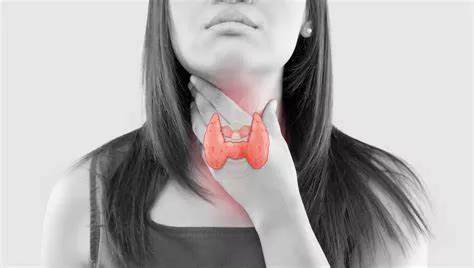Paroxysmal atrial fibrillation (PAF) is a type of irregular heart rhythm characterized by sudden and intermittent episodes of rapid and chaotic electrical activity in the atria of the heart. Understanding the causes of PAF is crucial for effective management and prevention. This article explores the five main causes of paroxysmal atrial fibrillation, shedding light on the factors that trigger this common cardiac condition.
5 Causes of Paroxysmal Atrial Fibrillation
1. Hypertension
Hypertension, or high blood pressure, is a leading cause of paroxysmal atrial fibrillation. Elevated blood pressure puts excessive strain on the heart, leading to structural and electrical changes in the atria. Over time, these changes can disrupt the normal conduction of electrical impulses, resulting in episodes of atrial fibrillation. Hypertension can cause the atria to become enlarged and the heart muscles to thicken, increasing the risk of atrial fibrillation. Effective management of blood pressure through lifestyle modifications and medications is essential to reduce the risk of developing PAF.
2. Coronary Artery Disease
Coronary artery disease (CAD) is another significant contributor to paroxysmal atrial fibrillation. CAD occurs when the coronary arteries, which supply blood to the heart muscle, become narrowed or blocked due to the buildup of plaque. This condition can lead to reduced blood flow to the heart, causing ischemia and damage to the heart tissue. The resulting scar tissue can interfere with the normal electrical pathways in the atria, triggering episodes of atrial fibrillation. CAD is often associated with other risk factors, such as hypertension, high cholesterol, and diabetes, which further increase the likelihood of developing PAF.
see also: Does Arrhythmia Cause Dizziness?
3. Thyroid Dysfunction
Thyroid dysfunction, particularly hyperthyroidism (an overactive thyroid gland), is a well-established cause of paroxysmal atrial fibrillation. The thyroid gland produces hormones that regulate the body’s metabolism. When the thyroid gland is overactive, it releases excessive amounts of thyroid hormones, which can increase the heart rate and cause irregular heart rhythms. Hyperthyroidism stimulates the sympathetic nervous system, leading to an increase in heart rate and a heightened risk of atrial fibrillation. Conversely, hypothyroidism (an underactive thyroid) can also contribute to PAF, albeit less commonly, by causing bradycardia (slow heart rate) and subsequent compensatory mechanisms that may trigger arrhythmias.
4. Sleep Apnea
Sleep apnea, a condition characterized by repeated interruptions in breathing during sleep, is a significant risk factor for paroxysmal atrial fibrillation. Obstructive sleep apnea (OSA) is the most common type and occurs when the airway becomes partially or completely blocked during sleep. This interruption in breathing leads to periods of hypoxia (low oxygen levels) and increased sympathetic nervous system activity. These physiological changes can trigger atrial fibrillation by promoting atrial remodeling, inflammation, and increased atrial pressure. Additionally, the frequent awakenings and poor sleep quality associated with sleep apnea can contribute to the development and recurrence of PAF.
5. Excessive Alcohol Consumption
Excessive alcohol consumption is a well-documented cause of paroxysmal atrial fibrillation. Alcohol has a direct toxic effect on the heart, leading to changes in the electrical properties of the atria. Binge drinking or chronic alcohol abuse can increase the risk of atrial fibrillation by promoting atrial fibrosis, inflammation, and oxidative stress. Additionally, alcohol consumption can trigger episodes of atrial fibrillation by causing fluctuations in blood pressure, electrolyte imbalances, and increased sympathetic nervous system activity. Reducing alcohol intake or abstaining from alcohol can significantly decrease the risk of developing PAF and improve overall heart health.
Managing Paroxysmal Atrial Fibrillation
Understanding the causes of paroxysmal atrial fibrillation is crucial for effective management and prevention. Here are some key strategies to manage and reduce the risk of PAF:
Control Blood Pressure: Regular monitoring and management of blood pressure through lifestyle modifications, such as a healthy diet, regular exercise, and medication, can reduce the risk of PAF.
Manage Coronary Artery Disease: Adopting a heart-healthy lifestyle, including a balanced diet, regular physical activity, smoking cessation, and medication adherence, can help manage CAD and reduce the risk of PAF.
Address Thyroid Dysfunction: Regular screening and appropriate treatment of thyroid disorders can help prevent the development and recurrence of PAF.
Treat Sleep Apnea: Effective management of sleep apnea through lifestyle changes, continuous positive airway pressure (CPAP) therapy, or other treatments can significantly reduce the risk of PAF.
Limit Alcohol Consumption: Reducing alcohol intake or abstainng from alcohol can lower the risk of PAF and improve overall heart health.
Conclusion
Paroxysmal atrial fibrillation is a complex cardiac condition with multiple underlying causes. Hypertension, coronary artery disease, thyroid dysfunction, sleep apnea, and excessive alcohol consumption are among the primary factors contributing to the development and recurrence of PAF. By understanding these causes and implementing appropriate management strategies, individuals can reduce their risk of paroxysmal atrial fibrillation and improve their overall cardiovascular health.
Regular medical check-ups, lifestyle modifications, and adherence to prescribed treatments are essential for effective management and prevention of this common arrhythmia.

